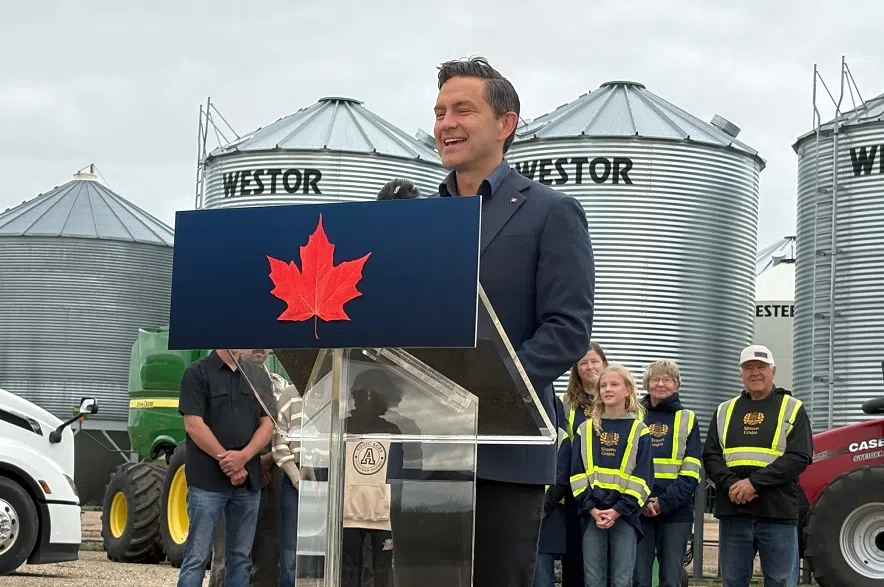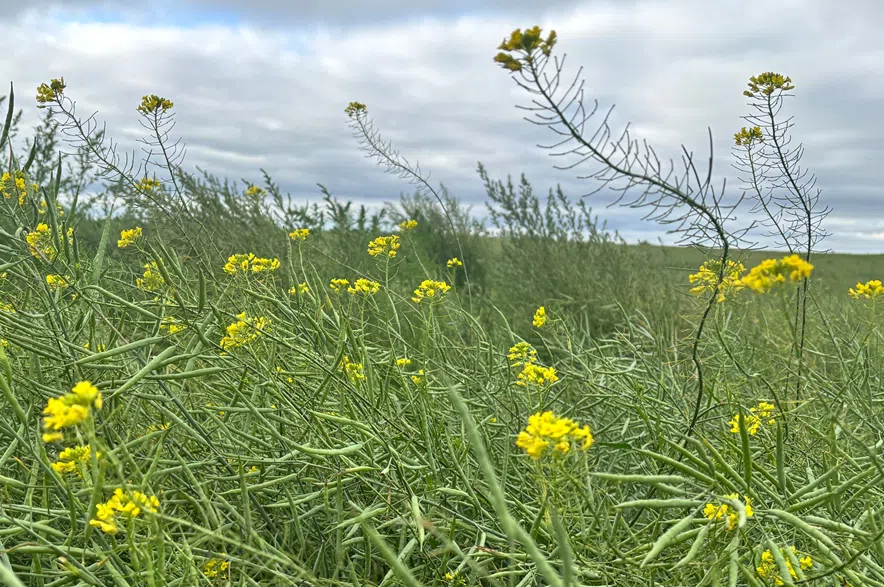A Saskatchewan farmer said he wants to see an open market with less government regulations that impact his ability to sell grain internationally.
His comments come after China imposed a tariff of 75.8 per cent on Canadian canola seed.
Read more:
- Chinese tariff on canola seed comes into force as farmers hope for resolution
- Feds vow to defend Sask. farmers after China announces nearly 76 per cent canola tariff
- P.M. ‘doesn’t care’ about farmers, wary of future EV regs: Poilievre
The duty was announced on Tuesday a year after China launched an anti-dumping investigation into Canadian canola, in response to Canada’s 100 per cent tariff on Chinese electric vehicles.
Derek Dery, the CEO of Sixteen Grains, a farm and food business located just outside of Saskatoon, said within one day of the announcement the market for canola was tumbling.
“There’s one canola field that surrounds this farm, so just instantly that’s one dollar a bushel lost off of the crop here in one single day,” he said.
“As farmers in Saskatchewan (and) western Canada, we’re always subject to geopolitics and the trade of the world.”
Dery said he is doing his best to stay positive and proactive, by forward selling his crop and employing different tactics to help protect his business.
“In the end, we haven’t harvested this crop yet,” he said. “There’s only so much you can do to protect your profitability other than just kind of hunkering down, storing crops (and) seeing your way through it.”
Dery said he wants to see more attention to the matter from the federal government, and noted this is not just an issue that has come to light over the last week.
“This has been present for the entire year, and we’ve had trade issues with China since 2018 as well,” he said.
The steel, aluminum and automotive sectors have received federal assistance from the government due to tariffs from the United States. Dery said he’d rather see the tariffs removed than a handout from Ottawa.
“I don’t want a cheque because we’re tariffing China on EVs and now they’re banning canola,” he said.
“As a farmer, I want to grow my crops, market my crops, add value to the economy in Canada, and just want a free market that lets us do that.”
Earlier this week, Saskatchewan Premier Scott Moe called on Ottawa to take “immediate action” to protect Canada’s $4.3 billion canola industry, saying the tariffs from China could have a “devastating impact” on the province.
Pierre Poilievre calls canola tariffs ‘unjustified’
On Thursday morning, Conservative Party Leader Pierre Poilievre held a news conference at the Sixteen Grains, addressing the tariffs.

Conservative Party Leader Pierre Poilievre holds a news conference at Sixteen Grains farm in Corman Park on Thursday, August 15, 2025. (Mia Holowaychuk/650 CKOM)
“China’s tariffs on canola producers are totally unjustified,” he told reporters.
Poilievre said China has a history of targeting Canada’s producers, even before the electric vehicle tariffs were imposed by Canada.
“The Chinese government has mistreated our economy for many years,” he said.
In response, Poilievre said he wants the federal government to cancel the $1 billion dollar loan extended to BC Ferries’ for the purchase of Chinese-made ships.
“That is crazy,” he said. “I think we should look at the ways we can penalize the regime in Beijing for targeting our farmers.”
–with files from The Canadian Press











